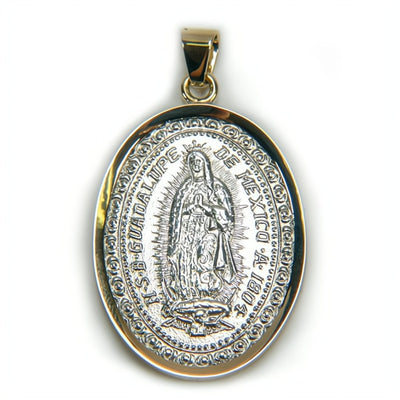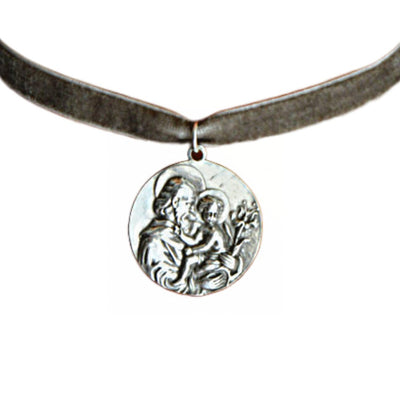Understanding the Historical Context of the Nicene Creed
The Nicene Creed is a cornerstone of Christian faith. Formulated in 325 AD at the First Council of Nicaea, it serves as a unifying statement of belief.
But what led to its creation? And why is it so significant in Christian theology?
This article aims to shed light on these questions. We will delve into the historical context of the Nicene Creed, exploring its origins, purpose, and the circumstances that led to its formulation.
We will also compare the Nicene Creed with the Apostles' Creed. This comparison will help clarify common confusions regarding their differences.
Whether you're a student of theology, a religious scholar, or simply curious, this exploration will provide a deeper understanding of these foundational Christian texts.
Join us as we journey back to the early days of Christianity, and uncover the rich history and enduring relevance of the Nicene Creed.
The Origins of the Nicene Creed
The early Christian Church faced significant challenges. With various interpretations of doctrine emerging, the community needed a shared framework of belief. This need was particularly pressing in the early 4th century.
Emperor Constantine the Great recognized these divisions' potential to disrupt social cohesion. To address this, he convened the First Council of Nicaea in 325 AD. This meeting aimed to establish a unified Christian doctrine.
Central to the council's discussions was the Arian controversy. Arius, a presbyter from Alexandria, argued that Jesus Christ was not divine but a created being. This claim threatened the Church’s understanding of the Trinity.
In response, the bishops at the council formulated the Nicene Creed. The creed affirmed the divinity of Jesus, declaring him to be 'of the same substance' as the Father. This key phrase 'homoousios' became fundamental in Christian theology.
The Nicene Creed was more than a doctrinal statement. It was a tool for unifying Christians amid disputes, providing a common ground for belief. Today, it remains a vital declaration of faith for many Christian denominations worldwide.
The Arian Controversy and the First Council of Nicaea
The Arian controversy posed a significant theological challenge to early Christians. At the heart of the dispute was the nature of Christ's divinity. Arius argued that the Son was a creation of the Father and, therefore, not eternal.
This theological stance had profound implications. It suggested a hierarchy within the Trinity, undermining the concept of equality among the Father, Son, and Holy Spirit. This divergence risked fracturing the Christian community, as differing beliefs spread rapidly.
To address this schism, the First Council of Nicaea was convened. Over 300 bishops gathered in Nicaea to deliberate. Their goal was to resolve the controversy and restore unity within the Church.
The Nicene Creed emerged from these discussions as a decisive statement. It explicitly affirmed the Son's divinity, asserting that he was 'begotten, not made'. This Creed became a cornerstone of Christian orthodoxy, defining the faith's understanding of the Trinity.
Homoousios: The Term that Defined Orthodoxy
At the heart of the Nicene Creed lies the term "homoousios". This Greek word means "of the same substance" and was pivotal in the Creed's formulation.
By using "homoousios", the Creed emphasized the Son's equality with the Father. This language clarified the Church's stance against Arius's views, affirming Christ’s divine nature.
Including "homoousios" resolved theological ambiguity and bolstered orthodoxy. It unified the Christian community under a consistent belief in the Trinity. This term remains integral to understanding early Christian doctrine and the Nicene Creed’s enduring influence.
The Expansion at the Council of Constantinople
The Nicene Creed underwent significant expansion at the Council of Constantinople in 381 AD. This gathering addressed theological gaps and further clarified the Creed's language.
The expansion included affirmations about the Holy Spirit's divinity. This addition reinforced the doctrine of the Trinity, emphasizing the equal status of the Father, the Son, and the Holy Spirit.
The revised Creed also expanded on the concept of the Church's catholicity and apostolicity. These clarifications helped solidify the Creed’s doctrinal foundation and its role in maintaining Christian orthodoxy across differing traditions.
The Nicene Creed vs. The Apostles' Creed: Clarifying the Differences
The Nicene Creed and the Apostles' Creed are both foundational Christian texts. Yet, they have distinct differences in content and purpose.
The Nicene Creed was developed to address theological controversies. It provides a detailed affirmation of the Trinity and Christ's divinity.
In contrast, the Apostles' Creed is an earlier, simpler statement. It provides a broad overview of core Christian beliefs without the same theological depth.
Main Differences in Content and Usage:
- The Nicene Creed is longer and more detailed.
- The Apostles' Creed is mainly used in Western liturgies.
- The Nicene Creed emphasizes the Holy Spirit's divinity.
- The Apostles' Creed is often used in baptismal rites.
The theological implications of these differences are significant. The Nicene Creed's emphasis on the Trinity helped establish a foundation for Christian orthodoxy.
By affirming Christ's divinity, the Nicene Creed addressed disputes, uniting early Christians in their beliefs. Meanwhile, the Apostles' Creed remains an ecumenical text, bridging denominational differences with its succinct expression of faith.
The Nicene Creed in Different Christian Traditions
The Nicene Creed holds a significant place across various Christian traditions. It is a common recitation during worship services.
In the Roman Catholic and Eastern Orthodox churches, the creed is pivotal to the liturgy. Its words echo throughout their sacred spaces.
Protestant denominations also uphold the Nicene Creed as a cornerstone of faith. This reflects its lasting impact and universal acceptance within Christianity.
Despite differences in practices, the creed's core affirmations remain central. It represents a shared foundation across diverse Christian communities worldwide.
The Creed's Role in Ecumenical Dialogues and Christian Unity
The Nicene Creed plays a crucial role in ecumenical dialogues. It acts as a bridge among differing Christian traditions, fostering unity.
The creed's broad acceptance highlights its potential for reconciliation. It serves as a mutual doctrinal foundation in discussions and agreements.
Despite theological differences, the creed's shared statements of faith unify believers. Its influence in ecumenical efforts is a testament to its timeless significance in maintaining Christian harmony.
Conclusion: The Living Legacy of the Nicene Creed
The Nicene Creed remains a powerful expression of faith. Its language and affirmations continue to shape Christian beliefs across denominations.
Its historical significance cannot be overstated. The creed connects believers today with the theological struggles and triumphs of the early Church.
As both a historical artifact and a living document, the Nicene Creed testifies to the enduring strength of shared faith and doctrinal clarity. It continues to be a source of unity and inspiration for Christians worldwide.
Additional Resources
For those looking to deepen their understanding of the Nicene Creed and its theological implications, consider exploring the following resources endorsed by the US Catholic Church and the Vatican:
- Catechism of the Catholic Church - This comprehensive guide explains the core beliefs of the Catholic faith, including sections on the Nicene Creed.
- The Vatican's Official Website - Offers documents, encyclicals, and teachings from the Popes that cover the Nicene Creed and its importance in Catholic doctrine.
- United States Conference of Catholic Bishops (USCCB) - Provides various resources, articles, and educational materials related to the Nicene Creed and other aspects of Catholic faith.
- Books by Theologians - Consider works by prominent Catholic theologians such as Hans Urs von Balthasar or Joseph Ratzinger (Pope Benedict XVI), who have written extensively on the significance of the Creed.
These resources can serve as valuable tools for exploring the Nicene Creed's role in the history of Christianity and its ongoing relevance in the faith today.




















Leave a comment